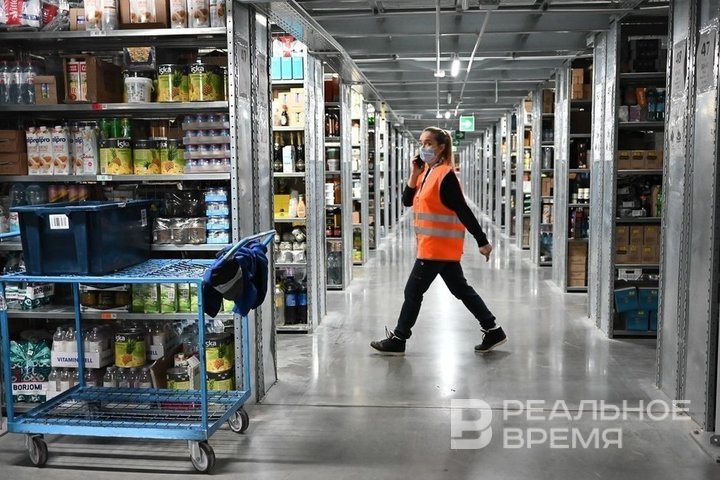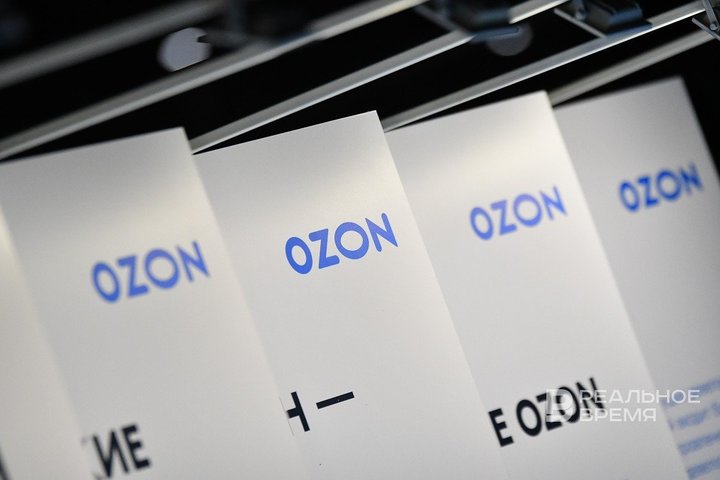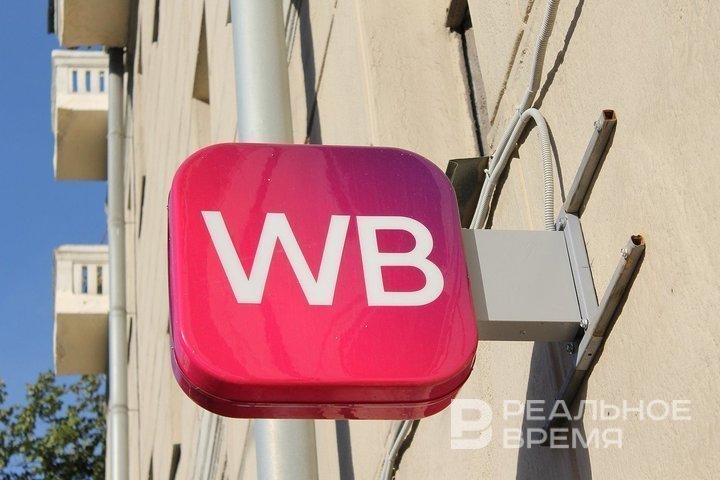Where to sell: the cost of marketplace entry fee for businesses
Realnoe Vremya's study on the cost of cooperation with electronic trading platforms

Trade in Tatarstan is rapidly moving to an electronic format: already 13% of entrepreneurs and self-employed people in the republic sell their goods on marketplaces, and about a third of them trade only online. However, as e-commerce sales grow, the cost of participation in this market is also growing. Realnoe Vremya studied the cost of entering electronic trading platforms, the pitfalls of business and the difficulties of finding a promising niche.
From 60 to 110,000 for admission
Registering as a seller on any marketplace today is a matter of minutes. It is not a problem to post a test batch of goods, but then everything works on the principle of “entry is a penny, exit is a dollar.” The seller pays some interest as a fee, pays for storing the goods that have been lying around in the warehouses of the electronic trading platform, for promotion — so that the goods do not lie around, for logistics, acquiring and so on.
The cost of the marketplace services depends on the category, size and price of the goods, as well as on a number of other factors. Realnoe Vremya calculated the approximate amounts of fees that sellers pay when selling certain categories of goods. However, in reality, the figures, depending on the type and cost of the goods, the size of the batch and other criteria, may differ from those listed.
Additional expenses that inevitably arise if the seller wants to better present the goods in a photo, video, make a high-quality description (this determines how many buyers will see this particular offer in the search) are not reflected here. According to experts who are available to the public, you will have to pay from 5 to 20,000 rubles for photography, from 2-5,000 for a video, from 3,000 per piece for professional filling out of cards. Another expense item is product certification, which will cost at least 5 thousand rubles. Advertising a product can cost 20,000 rubles or more.

When registering on Wildberries, you will need to pay a security deposit — today it is 30,000 rubles. In addition, in contracts with sellers, marketplaces may provide for the right to change the size of commissions unilaterally, so a “safety fund” is needed, which is estimated at 20-50,000 rubles in different sources.
Experts today estimate the final cost of an “entrance ticket” to electronic trading platforms at 60-110,000 rubles.
Not first but fifth
The number of Russians who have purchased something on marketplaces at least once in 2021 was 15 million, in 2023 — 88 million. 84% of Russians buy goods here, and 80% make such purchases more than two or three times a month. According to experts, the number of sellers on marketplaces will increase by more than one and a half times by the end of 2024 and reach 700,000.
According to Data Insight, the share of Wildberries in the Russian online sales market is 47%, Ozon — 34.4%, Yandex Market — 8.1%, Magnit Market — 0.4%, other marketplaces — 10.2%. The number of Russians who have purchased something on online platforms at least once has increased sixfold — from 15 million in 2021 to 88 million in 2023, and their turnover over 3 years (2021-2023) has increased more than sevenfold.
In 2023, according to the same source, Tatarstan took fifth place in the top 10 in terms of seller registration — only Moscow and the Moscow region, St Petersburg and the Krasnodar region are ahead. As of early December 2023, 8,900 Tatarstan enterprises and entrepreneurs have registered on Ozon, and 9,400 — on Wildberries.
“Some thought that online trading does not require human presence”

Yarullina noted that when determining the conditions for sellers, marketplaces focus on each other, as a result, the conditions are almost the same everywhere. According to her, a new player in this market needs to consider many different subtleties in order not to get into trouble. For example, someone who sells clothes must be prepared for the fact that a customer who has ordered the same item in several sizes will take one unit of the product and the rest will have to be returned — and this will entail additional costs. And also the entrepreneur entering this market must use advertising tools to be successful — from, say, free promotions and points to advertising banners on the main pages of marketplaces.

“When we first started working and bringing sellers to marketplaces in 2021, some people thought that online trading does not require a person's presence: you put the goods and that's it,” says Yarullina. “But you need to constantly log into your personal account, check the balances, see what is being bought and what needs to be fixed. Much depends on how much the seller can spend on advertising in order not to go into the red.”
Over the past three years, according to her data, sellers' fees for logistics, returns, the last mile, commission and advertising have increased from 25% of the cost of the goods to 40-45%, and in some cases up to 50%. And for the cheapest goods, the cost of delivery already covers their cost.
Support as a tool for saving
“I entered Kazan Express as a self-employed person with a product that was to some extent made by hand — notebooks made of craft paper,” Kazan entrepreneur Vadim Gershanov told Realnoe Vremya. “These products are designed for a specific audience, and the original names that I gave the notebooks were a kind of hook for a specific group of buyers. This platform, with penny turnover, turned out to be the most convenient for me.”
Subsequently, Gershanov switched to Wildberries using free support of the msp.rf platform. He believes it would be much more difficult to do this on his own, since each marketplace has its own rules and features that entrepreneurs may not know or understand. Thanks to this, at the debut stage, the entrepreneur did not have to spend money on paying for professional photos, correctly filling out product cards, etc. He received support until the first delivery.

Now, Gershanov is also entering Ozon through the msp.rf platform. The path is the same — support is provided until the first delivery of goods is completed.
“If you have working capital and you want to invest, you need one strategy for entering the marketplace, if not, another one,” says Vadim Gershanov. “In the absence of money, you look for cheap goods, start with small deliveries. But in any case, choosing the right product niche is important. No one will tell the entrepreneur about it, will not give this information — he himself will sell this product in this niche.”
A representative of a Mendeleyev enterprise specialising in the production of furniture under the brand Stul y Kov and selling its products on several marketplaces, told Realnoe Vremya that in terms of both initial costs and subsequent expenses, sellers with their own production are in a more advantageous position: unlike resellers who come out with someone else's products, they have their own packaging lines, warehouses, logistics and this ensures savings.
“In turn, the reseller has more room to manoeuver — they can try to supply a small batch of one product and, having spent a minimum amount, evaluate the prospects of this direction in order to decide whether to continue further or look for another niche.”
But in any case, you need to be prepared, says the interlocutor of Realnoe Vremya, for the fact that the product “will not be a success” and it will have to be sold at a minimum price, even at cost — at a loss.
Such a trend
“With the growth of competition on marketplaces, it is increasingly difficult for entrepreneurs and the self-employed to bring their product to bestsellers doing nothing,” the press service of the Commissioner for the Protection of Entrepreneurs' Rights under the President of the Republic of Tatarstan Farid Abdulganiyev told Realnoe Vremya. “To achieve success, it is very important to know and be able to use the tools of analysis and promotion of goods that are provided by marketplaces. That is why we have been holding free educational forum marathons in Tatarstan for the third year already. More than 3,000 of their participants have registered their stores on marketplaces and are successfully trading.”
The business ombudsman's office emphasised: according to official data, the number of Russians who have purchased something on marketplaces at least once has grown from 15 to 88 million in 3 years, and the turnover of online platforms has increased more than sevenfold. In 2023, the Russian the e-commerce market increased by 45.1% and reached a volume of 8.3 trillion rubles, in 2024, according to the forecast of the Association of Internet Trade Companies, it will grow to 9 trillion rubles, and in the next 3 years it will reach 18 trillion, while the share of online trading in the total volume of retail sales will increase from 14.9 to 25%.
